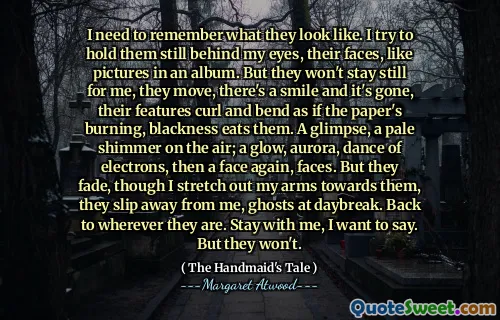We thought we could do better.Better? I say, in a small voice. How can he think this is better?Better never means better for everyone, he says. It always means worse, for some.
In Margaret Atwood's "The Handmaid's Tale," characters grapple with the notion of improvement and its implications. One character reflects on the idea that progress can often come at a cost, suggesting that attempts to enhance a situation frequently lead to disadvantages for others. This perspective raises questions about the true meaning of "better," emphasizing that improvements can create a divide rather than serve everyone equally.
Atwood’s work challenges readers to consider the complexities of societal change. The dialogue reveals a tension between the pursuit of an ideal and the inevitable sacrifices made during that process. The assertion that "better" can never truly encompass everyone’s experience underscores the theme of inequality that permeates the narrative, reminding us that advancements may benefit some while marginalizing others.






